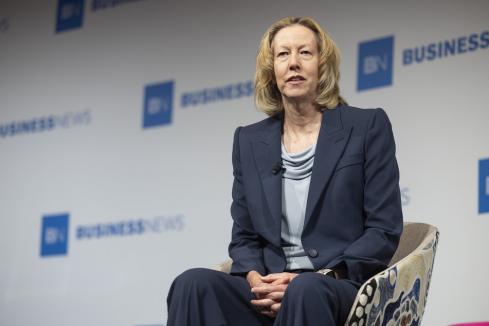

COULD the state government do more to encourage investment in IT?
The federal government’s National Broadband Network might have generated mixed views from those attending the WA Business News online business forum, but the state received few plaudits either, with criticism particularly directed at its absence from this space.
“This whole issue is completely off the radar for the state government,” Rob Evans from consulting firm Velrada said.
“There is no state CIO (chief information officer).
“There is nothing from the state government perspective to coordinate a response to a need, let alone an opportunity.”
Long gone are the days of Mal Bryce who, as a cabinet member of Brian Burke’s Labor state government, drove the development of Technology Park in Bentley.
Not that long ago the Western Australian government even talked about a state broadband network.
These days it is hard to work out which ministerial portfolio would embrace issues of the internet or the infrastructure it requires.
Paul Farrell, managing director of location-based information and technology solutions provider NGIS, believes it goes further than that, noting the sector is not considered a priority by the peak lobby group the Chamber of Commerce and Industry WA.
Declining interest
“I sat on their ICT steering committee; they disbanded that a year or two ago, which is very disappointing,” Mr Farrell told the forum.
“Here’s an industry that can have a real effect and improve the productivity of our state.
“It is great times now, but it is not always going to be great times; you have to fall back on being efficient.
“We can live with waste at the moment but as soon as it gets competitive what are you going to fall back to?
“Now is the time to be investing in being efficient.
“Smart companies do it all the time; right now they are reducing their break-even, so when it becomes difficult and there is a price war they can drop their prices and get rid of the competition … then they can put their prices up and survive.
“As a state we should be doing it right now.”
With NGIS involved in geographic information systems, it is perhaps not surprising Mr Farrell believes the state’s land mass and sparse population creates unique challenges that technology could help overcome.
On the other hand, GoPC founder Graeme Speak did not believe that the state government had any role to play in the sector.
“I don’t see what the government can do for us,” Mr Speak said.
Most others in the room believed there was a role for government, however.
Diversified technology group ipernica managing director, Simon Crowther, said it was not about handouts to business; there was simply room for the government to play a leadership role.
“It is disappointing when you are operating in Perth for the first time,” he said.
“There’s no natural sense that the government is involved in stimulating or supporting (development) at least.”
Regional activity
Rio Tinto Iron Ore chief information officer Rohan Davidson said his experience running operations in the north-west was that the state government was very active in providing infrastructure to regional and remote communities.
“There is not a commercial return, that is why they are there,” Mr Davidson said.
But he agreed the state could play a bigger role in helping industry work together.
“There is an opportunity,” Mr Davidson said.
“Government can bring together businesses with a common problem and find solutions.
“Absent a permanent IT facility inside government that is unlikely to happen by itself.”
reiwa.com manager Charlie Gunningham agreed that there was little the state did to encourage the development of online business, which is why several years ago he and a group of internet entrepreneurs started eGroup.
That was a collection of businesses that operated exclusively via the web.
These days the group is broader but still focused on the needs of businesses or managers that operate in an online environment.
“There was nothing else for e-businesses,” Mr Gunningham said.
Offshore development
Mr Gunningham said the isolation of Perth made it difficult for online businesses based here to access the networks they could elsewhere.
This is a familiar refrain for technology-reliant businesses, which typically struggle to find skilled staff and the capital they need because the sector does not have the scale to overcome the tyranny of distance.
In his former business aussiehome.com, which was bought by his current employer Real Estate Institute of WA, Mr Gunningham solved many of these problems himself, or by using informal networks of entrepreneurial friends.
For instance, the aussiehome.com solution to the skills shortage was to go offshore. That move was not an outsourced one but actually establishing a development base in Delhi, which remains part of the group under the REIWA banner.
Mr Gunningham said the move to offshore and the group’s particular management strategy had worked well to overcome the skills shortage issue that hits so many companies here, let alone in IT.
“I think they are very much part of our company,” he said. “When we moved to REIWA, that was one of the attractions.”
Running an online business with a retail focus, Mr Gunningham tries to keep up with the latest trends in the sector.
Social media
A recent visit to a major real estate conference in the US highlighted the rapid take-up of hard technology innovations such as touch and mobile but also the softer end such as social media.
“It is not just social media, it is social engagement,” Mr Gunningham said.
The rise of networks such as Facebook, Twitter and, more recently Yammer meant that businesses needed to be more active with their content to attract attention.
Furthermore, they needed to be more active monitoring what was happening on social media to be able to respond to what was being said about them or their industry, Mr Gunningham said.
Socialite Media founder Tenille Bentley has started a consultancy aimed at helping other businesses get to grips with social media.
Ms Bentley said there was a lack of understanding by business owners about how social media could work for them, especially among the younger audiences – be they customers or employees.
She said people used social media to find out more than what traditional websites offered.
“Now the consumer is more astute, this is speeding up the purchasing decision,” Ms Bentley told the forum.
“You need to manage it.”
Not everyone at the WA Business News online business forum felt that social media’s value could easily be assessed, citing some of the traditional arguments against putting advertising and marketing in the hands of outsiders.
“I understand that concern,” Ms Bentley said.
“Your brand is you and you want to make sure you are talking to them (the market) in the language that you would normally be talking to them in.
“But it can be achieved.”
Turning point
Another trend covered in the forum was that of cloud computing, which effectively makes computing a service managed elsewhere, rather than a physical product.
Two attendees – GoPC founder Graeme Speak, a well-known WA technology entrepreneur who started out running data centres in Perth, and Amcom’s Richard Whiting – cited an inflection point in the market about six months ago when it suddenly became an accepted idea.
“We have been at this for 16 years,” Mr Speak said. “I don’t have to sell it anymore.”
Mr Whiting said Amcom’s seminars on the issue suddenly became very popular.
He said he saw it as part of a natural progression to move non-core elements of the business, a trend in IT that started with routers and moved onto servers before the cloud option appeared. Part of the change, Mr Whiting said, was driven by higher electricity prices – something that makes the option to push power-hungry computing outside an organisation more attractive.


















